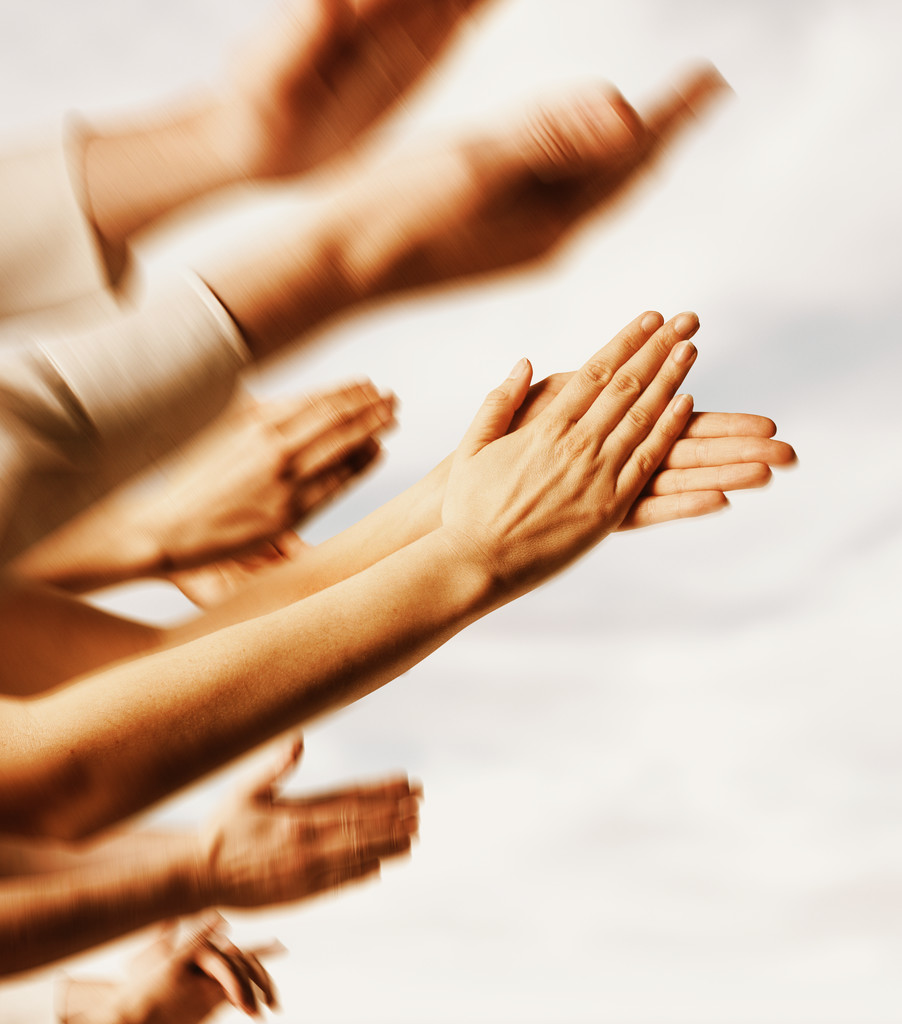 Why do we clap? It’s a sign of approval, true. But, why does making noise by smacking the skin of our hands together translate to praise? For some reason, I thought about this in class today. Whenever we introduce someone new, we clap. Whenever someone finishes a presentation, we clap. Regardless of the degree of enjoyment we receive from a speaker, we generally clap our hands for them (some louder than others). This got me thinking, do all cultures clap? Why is it such a common sign of approval in America?
Why do we clap? It’s a sign of approval, true. But, why does making noise by smacking the skin of our hands together translate to praise? For some reason, I thought about this in class today. Whenever we introduce someone new, we clap. Whenever someone finishes a presentation, we clap. Regardless of the degree of enjoyment we receive from a speaker, we generally clap our hands for them (some louder than others). This got me thinking, do all cultures clap? Why is it such a common sign of approval in America?
According to Esquire, clapping can be traced back to the third century. In the plays of Plautus and Terence, the word “plaudite” appears which translates as “applause.” The article also notes that in Roman times, expressions of praise and approval were shown by snapping fingers. We still do this from time to time in America. However, this is normally when clapping would be too disruptive to the activity. I’ve heard it referred to as giving “snaps.”
However, clapping has different meanings in some cultures. For instance, in South Africa, clapping has a strong tie to medicinal work. According to Culture and Customs of South Africa, in some South African tribes it is customary to clap for healers in order to help them enter a trance during intense healing rituals.
This is just another one of the many parts of life that this seminar has caused me reevaluate. Every class I challenge some of the habits and customs I assume are universal. I appreciate what everyone brings to the table and the atmosphere we are creating.


In Brazil when you go to someone house instead of ringing a bell or knocking visitors will often clap to get the people in the house to come to the door or gate.